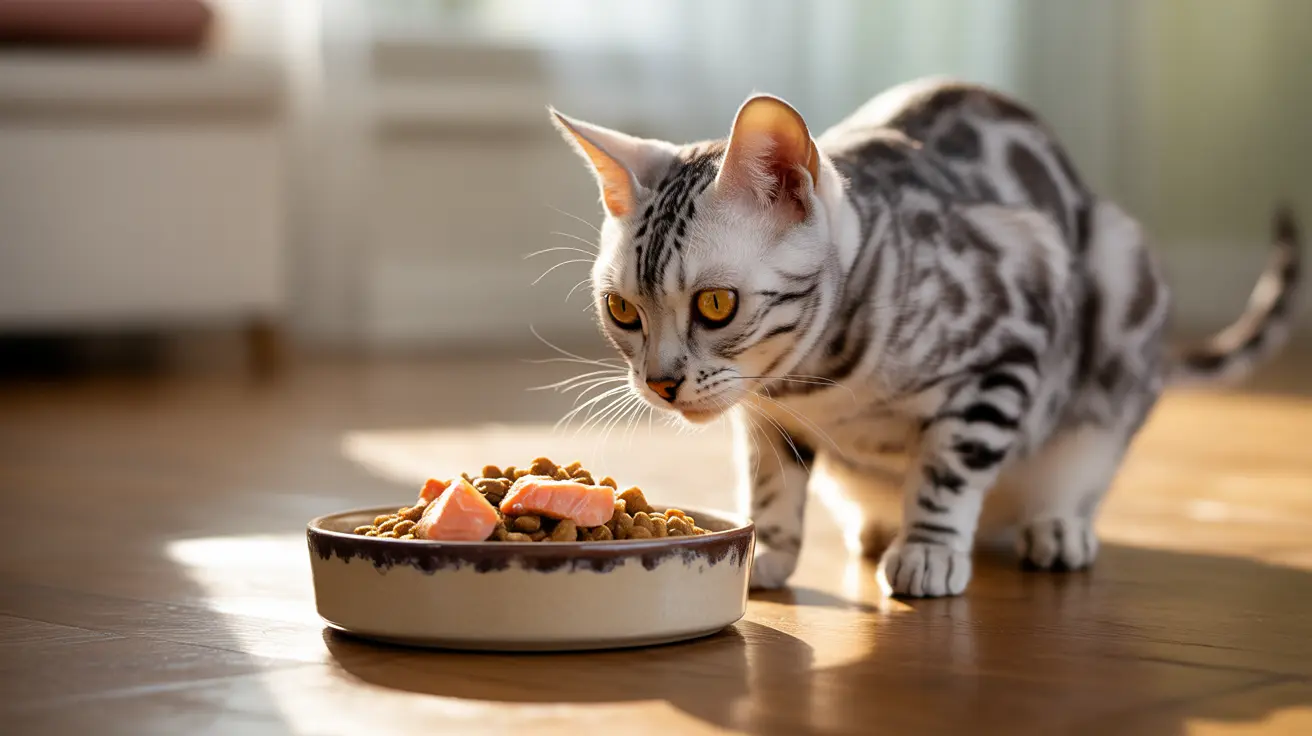As obligate carnivores, cats have unique dietary requirements that set them apart from other pets. Protein plays a crucial role in their nutrition, serving as both a building block for tissues and a primary energy source. Understanding your cat's protein needs is essential for maintaining their health and ensuring they thrive throughout all life stages.
In this comprehensive guide, we'll explore everything you need to know about protein in cat food, from recommended amounts to quality considerations and how requirements change as your cat ages.
Understanding Cats' Unique Protein Requirements
Cats evolved as strict carnivores, developing specific biological needs that can only be met through animal-based proteins. Unlike dogs or humans, cats cannot efficiently process plant proteins or synthesize certain amino acids on their own. Adult cats require a minimum of 26% protein in their diet, while kittens and nursing mothers need at least 30%.
This high protein requirement stems from cats' unique metabolism, which relies heavily on protein for energy production rather than carbohydrates. In the wild, cats naturally consume prey that consists of approximately 55% protein on a dry matter basis.
The Benefits of High-Quality Protein Sources
Not all protein sources are created equal when it comes to cat nutrition. Animal-based proteins provide the complete amino acid profile that cats need, including essential compounds like taurine and arginine. These amino acids are crucial for:
- Heart health and function
- Vision and eye health
- Reproductive system maintenance
- Muscle development and maintenance
- Immune system support
- Healthy skin and coat
How Protein Needs Change Throughout Life Stages
Your cat's protein requirements evolve as they age, with different life stages demanding varying levels of dietary protein:
Kittens and Nursing Mothers
Growing kittens and nursing mothers require the highest protein levels, with a minimum of 30% in their diet. This supports rapid growth, development, and milk production.
Adult Cats
Healthy adult cats need at least 26% protein in their diet, though many experts recommend levels closer to 35-40% for optimal health.
Senior Cats
Contrary to older beliefs, senior cats often benefit from increased protein intake, sometimes requiring up to 50% protein to maintain muscle mass and compensate for decreased protein absorption.
Signs of Protein Deficiency in Cats
Insufficient protein intake can lead to several health issues:
- Poor coat quality and increased shedding
- Muscle wasting
- Weakened immune system
- Lethargy and decreased activity
- Slow wound healing
- Poor growth in kittens
Selecting the Right Protein-Rich Cat Food
When choosing cat food, look for products that list high-quality animal proteins as the first ingredients. Quality indicators include:
- Named meat sources (e.g., "chicken" rather than "meat by-products")
- Multiple animal protein sources in the top ingredients
- Protein percentage clearly stated on the label
- Limited carbohydrate fillers
Frequently Asked Questions
How much protein does my adult cat need in their food for optimal health?
Adult cats require a minimum of 26% protein on a dry matter basis, though 35-40% is often recommended for optimal health. This translates to approximately 2.3 grams of protein per pound of body weight daily.
Why is animal-based protein important for cats compared to plant-based protein?
Animal-based proteins contain all essential amino acids cats need in the right proportions, including taurine and arginine, which cats cannot synthesize themselves. Plant proteins lack these crucial nutrients and are less digestible for cats.
How do protein requirements change for kittens, pregnant cats, and senior cats?
Kittens and pregnant cats need at least 30% protein, while senior cats may benefit from 40-50% protein to maintain muscle mass. These increased requirements support growth, milk production, and compensate for age-related changes in protein absorption.
What are the risks of feeding my cat too little or too much protein?
Too little protein can lead to muscle wasting, poor coat quality, and weakened immunity. While excess protein rarely causes problems in healthy cats, those with kidney disease may need modified protein levels under veterinary supervision.
How can I tell if a cat food has the right amount and quality of protein from the label?
Check the guaranteed analysis for protein percentage and ensure animal proteins are listed first in the ingredients. Look for named meat sources rather than by-products, and avoid foods with high grain or plant protein content.
Providing your cat with the right amount and quality of protein is fundamental to their health and longevity. By understanding their unique nutritional needs and choosing appropriate protein-rich foods, you can help ensure your feline friend maintains optimal health throughout their life.






